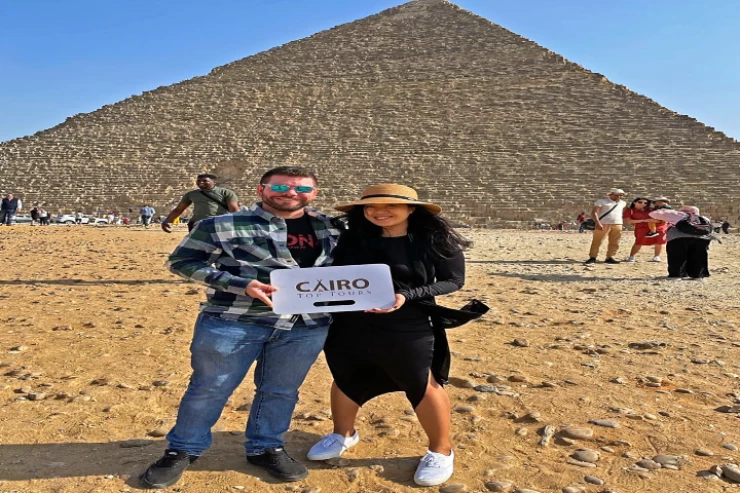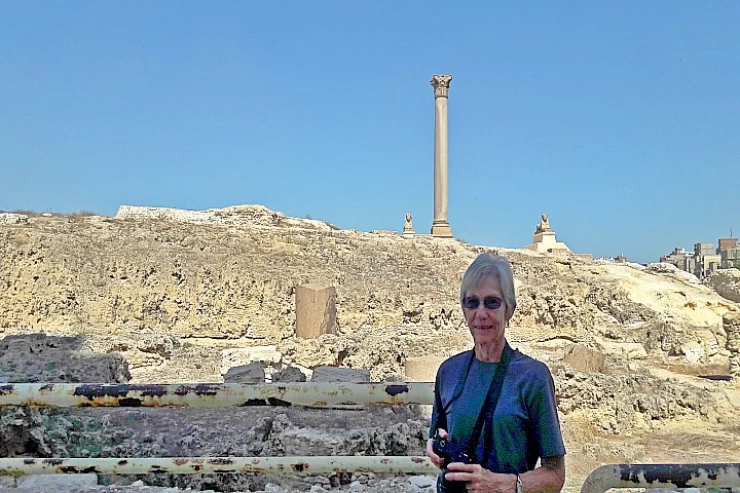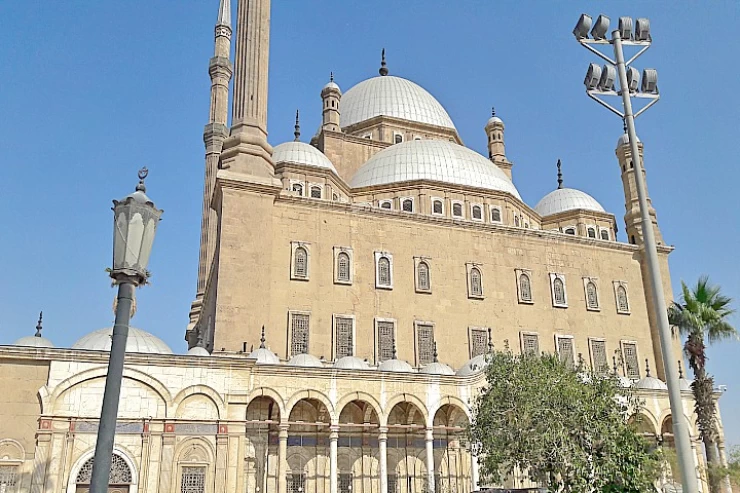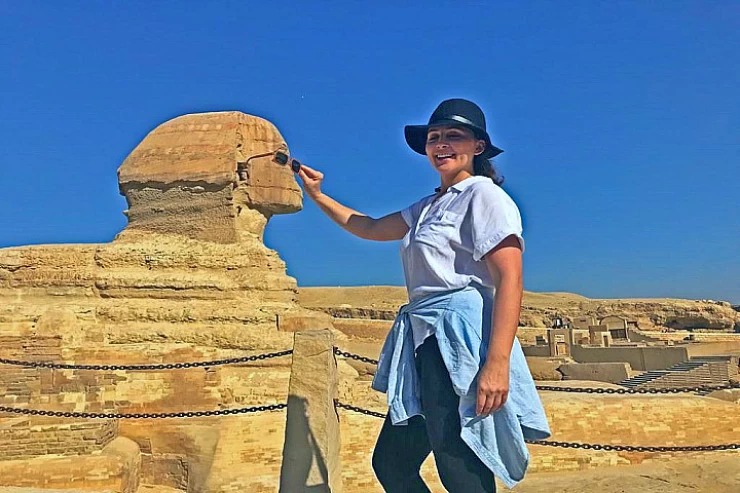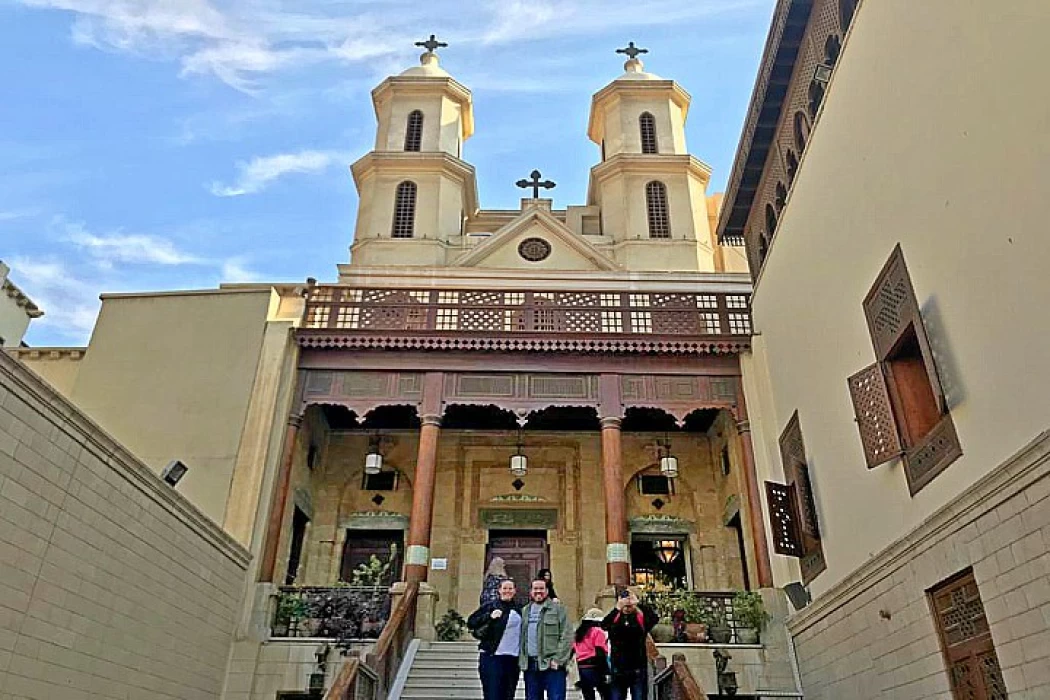
Coptic Cairo | Old Cairo
History
There is evidence of settlement in the area since the 6th century BC, when the Persians built a fortress on the Nile, north of Memphis. The Persians also built a canal from the Nile (in Fustat) to the Red Sea. The Persian settlement was named Babylon, reminiscent of the ancient city along the Euphrates, and gained importance as the nearby cities of Memphis and Heliopolis declined. During the Ptolemaic era, Babylon and its people were mostly forgotten.
It is traditionally believed that the Holy Family visited the area during the journey to Egypt, seeking refuge from Herod. Mark arrived in Alexandria, becoming the first patriarch, although the religion remained underground during the rule of the Romans. When the local population began to organize a rebellion, the Romans, realizing the strategic importance of the area, seized the fort and transferred it to a nearby place called the fortress of Babylon. Trajan reopened the canal to the Red Sea, which led to an increase in trade, although Egypt remained in a quandary for the Romans.
During the reign of the Romans, St. Mark and his successors managed to convert a significant part of the population from pagan beliefs to Christianity. With the growth of Christian communities in Egypt, they were persecuted by the Romans, under the rule of Emperor Diocletian around 300 AD, and the persecution continued after the Edict of Milan, which declared religious tolerance. The Coptic church later separated from the Church of the Romans and Byzantines. Under the reign of Arcadius (395-408), a number of churches were built in Old Cairo. In the early years of Arab rule, Copts were allowed to build several churches within the Old Fort area of Old Cairo.
The Ben Ezra Synagogue was established in Coptic Cairo in 1115, in what was previously a Coptic church built in the 8th century. In the XI century AD, Coptic Cairo hosted the headquarters of the Coptic Orthodox Pope of Alexandria, whose seat is historically located in Alexandria. With the transfer of ruling powers from Alexandria to Cairo after the Muslim conquest of Egypt under Pope Christodoulos, Cairo became the fixed and official residence of the Coptic Pope in the Hanging Church of Coptic Cairo in 1047. Founded in 1910, the Coptic Museum houses the most important examples of Coptic art in the world.
Regions
Ancient Egypt is divided into several subdistricts Fustat,"Kharta Abu Al-Saud","Ezbet Fustat","Al-fransawi","Sheikh Mubarak's Kharta", Al-maneel, Al-Rawda Al-Zahra,"Kom gharab district", mouth of the Gulf, tanneries, "Hassan Al-Anwar", "sugar and lemon", "land of Sadat", Deir El-Nahhas and"Hermel", "trace of the Prophet", "Abu seifin", "Tibi", "Al-gebasa", "Gypsy monsters", "ish monkeys", "Alawites".
And the most recent residential communities in this neighborhood were (new city of Fustat), which is located behind the Fustat Park between the two lakes of Ain Al-Sira, which is now the most prestigious residential area in the neighborhood. The Museum of Civilizations is being established with a grant from UNESCO, which will become the largest Egyptian Museum after the Grand Egyptian Museum. Next to the museum is the building of the National Documentation House.
transportation
Among the most important streets of ancient Egypt are "Jama Amr Street","Corniche of ancient Egypt","Al-jeyara"," Hassan Al-Anwar Street", "Abu Seifin Street","Mohammed Al-Saghir Street"," Abdul Aziz Al-Saud Street","Al-Qom Street", and "Imam Road". The bottle. The basement. The Polk. Gluttony. Radish Basin. Nesting. Geagea).
Monuments of the region
There are many archaeological areas in ancient Egypt, such as the Hanging Church, which is one of the oldest and most ancient churches in Egypt and built on a suspended form and not on columns or concrete, the Amr ibn al-Aas mosque is the oldest mosque in Africa, in which the last ten nights of Ramadan are revived in the Amr ibn al-Aas mosque, in addition to holding Eid prayers in front of its courtyard, which is specially prepared for the matter, the Church of Abi Serga.
Coptic Cairo is located in the center of the vast metropolis of Egypt. As the names go, Coptic Cairo is the district replete with history and antiquities—more so, stories of this country’s prominence in Christianity. The district popularly referred to as Old Cairo is one of the oldest parts of the city and is one of the best illustrations of the great melting pot that is the country’s history. People come here to appreciate the mixtures of obvious architectures of all religions—Christianity, Judaism, and Islam. This is to explain more what Coptic Cairo has to offer any tourist who wishes to visit Egypt and not just to see the Pyramids.
A Walk Through History: The Origins of Coptic Cairo
Coptic Cairo is the memory of the period when the settlement was referred to as Babylon the Great, the Roman Empire's fortress on the Nile River. As early as the 4th century, this region became a great hub for Christianity and scholarship. The transformation of this area into a religious center is attributed to the advancement of Christianity in Egypt which can be dated back to the coming of St. Mark in Alexandria in about 42 AD. Christianity expanded, leading to the construction of many churches within Egypt, with Coptic Cairo being the first.
Copt is a name that is given to the Christians from Egypt who belong to the Coptic Orthodox Church, whose doctrine is considered to have been founded by the apostle Mark. Coptic Cairo is a time waiting to be unearthed since it harbors many ancient churches, convents, and other buildings vital for the study of the growth of Christianity in Egypt and the area around it.
1. The Hanging Church (Saint Virgin Mary's Coptic Orthodox Church)
The Hanging Church, which gets its name from the position it sits in, on the upside of the Roman gatehouse of Babylon, is one of the most remarkable and magnificent landmarks in Coptic Cairo. Constructed in the third century, the church is one of the ancient churches in Egypt and is very dear to the Coptic community. The interior design of the church is unique, as it has a wooden ceiling that is crafted like Noah’s Ark, the walls are beautifully detailed, and there is an iconostasis. Visitors are treated to 110 icons depicting biblical scenes and Coptic saints, the oldest of which dates to the 8th century.
2. The Church of Sts. Sergius and Bacchus
Another olden-era church targets modern young and old Christians and lots of tourists, as it is said to have been erected in the cave where the Holy Family hid by the time they were headed to Egypt. The Church of St. Sergius and Bacchus has a mystical aura and simple beauty, which makes one feel immersed in the time of early Christians in a very strong way. The crypt where the Holy Family is said to have taken shelter is accessible to visitors, which provides a striking contrast between the ancient stories of Egypt and the Bible.
3. The Ben Ezra Synagogue
The Ben Ezra Synagogue is one of the most ancient Jewish worship centers in Egypt and is living proof that diverse religious communities may peacefully co-exist in the country. Local tradition maintains that the very synagogue is built on the ground where the Pharaoh`s daughter discovered Moses in the bulrushes. Once a Coptic church, it was turned into one in the 9th century and is an exquisite example of architectural design, comprising carved wooden panels, lovely murals on ceilings, and other historic pieces.
4. The Coptic Museum
Coptic Museum is a must-visit place if one feels like exploring more on the history of Coptic Christianity. Established in 1910, it boasts the largest collection of artifacts and artwork belonging to Copts in the world, including decorated books, clothes, and Coptic icons. This museum also opens up the world to many imaginations about the lives of early Egyptians—Christians in particular—their arts, as well as Coptic art that evolved in different climates interacting with other cultures.
5. The Monastery and Church of St. George
St. George's Church is an exceptional place, as it is one of the rare surviving round-shaped churches in the Middle East. The Greek Orthodox Church here was believed to have been erected in the 10th century; however, some sources even suggest that the primary edifice was erected in the sixth century. The monastery and church are dedicated to Saint George, who is one of the most revered and cherished saints in Christianity, and they still serve the local Christians as places of worship. Also, every April, there is a feast devoted to Saint George, which welcomes many pilgrims all around the year.
On its own, Coptic Cairo is more than a place of worship; it is a representation of the multilayered legacy of Egypt. The area is a perfect example where different practices, traditions, and beliefs, including Christianity, Judaism, and Islam, have interacted within a small radius for centuries. A church, a mosque, and a synagogue are often located within close range of each other, which hints at the existence of wonderful stories about these places and the people in them.
Coptic Cairo illustrates well the enduring spirit and flexible nature of the Copts, who have been able to practice their faith and customs even in the face of changes that have rocked Egypt over the years. This is not just a tourist attraction; it is a zone with schools, markets, and even houses, which maintains a character that is dynamic and expanding.
Dress Appropriately: As a lot of the places of interest are of religious significance, it is important that one dress appropriately. This implies that one should wear clothes that cover their shoulders and knees.
Management of Time: Coptic Cairo is an extensive area with lots of things to see, and many of the places close by early evening. Browse around every place for a couple of hours and enjoy the ambiance without the pressure of time in the views.
Photography: One or two of their chapels and the Coptic Museum may not allow the taking of pictures; hence, it is advisable to seek the courtesy of asking before taking any pictures.
Hire a Professional Guide: Every destination has its own story and history, and every traveler ought to understand that, so it’s better to hire professionals. Their service will be needed as they will explain things like the signs, customs, and stories that cannot be seen or heard by ordinary visitors.







